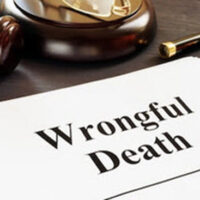How Do Damages Work in Wrongful Death Cases?

Serious and fatal accidents are not only devastating for the person who is injured, but for their surviving family members, as well. In the aftermath of a deadly accident or an injury caused by another party’s action, it is important for surviving family members to know that they may be eligible to obtain damages through a wrongful death lawsuit. Although damages in a civil claim can never bring a loved one back — they cannot truly make surviving family members “whole” again in that regard — they can help to provide the financial support that the deceased would have provided, and they can help to cover the costs of losses associated with the deadly accident.
The term “damages,” to be clear, usually refers to financial compensation that the wrongdoer or liable party is required to pay after causing injuries to another party. How can a surviving family member seek damages in a wrongful death case? Our Richmond wrongful death lawyers can explain.
First, the Personal Representative Must File a Wrongful Death Lawsuit
In order for surviving family members to receive damages, the first thing that must happen is that the personal representative of the deceased’s estate (also known as the executor) must file a wrongful death lawsuit. While some states permit a range of surviving family members to file a wrongful death lawsuit, Virginia law requires the personal representative to be the named plaintiff. The statute of limitations — the amount of time available to file a wrongful death lawsuit — is usually two years from the date of the deceased’s death.
Prove a Wrongful Death
In order for damages to be awarded, the plaintiff must prove that the defendant was liable for the wrongful death of the deceased. The elements of the claim are usually based on negligence, but other theories of liability could apply depending on the circumstances.
Statutory Beneficiaries Can Receive Damages
Under Virginia law, even though the personal representative of the estate actually files the wrongful death lawsuit, certain statutory beneficiaries are the ones who are able to receive the damages awarded in the case. Statutory beneficiaries include surviving dependents and family members of the deceased in this order:
- Surviving spouse, children, or grandchildren;
- Surviving parents and siblings, or other dependent relatives; and
- Surviving family members eligible under Virginia’s intestate succession laws.
Types of Damages
What kinds of damages can surviving family members expect in a wrongful death case? Typically, damages include economic and non-economic damages, such as:
- Surviving family members’ emotional suffering;
- Loss of the deceased’s companionship;
- Deceased’s lost income; and
- Funeral expenses for the deceased.
The amount of the damages will depend on the direct financial losses the surviving family members have experienced, as well as other details of the case. Damages awards are determined on a case-by-case basis.
Contact Our Richmond Wrongful Death Attorneys
If you have any questions about seeking damages in a wrongful death claim, you should get in touch with an experienced Richmond wrongful death lawyer at Latham & Martin as soon as possible. We can provide you with more information today.
Source:
law.lis.virginia.gov/vacode/title8.01/chapter3/section8.01-50/
